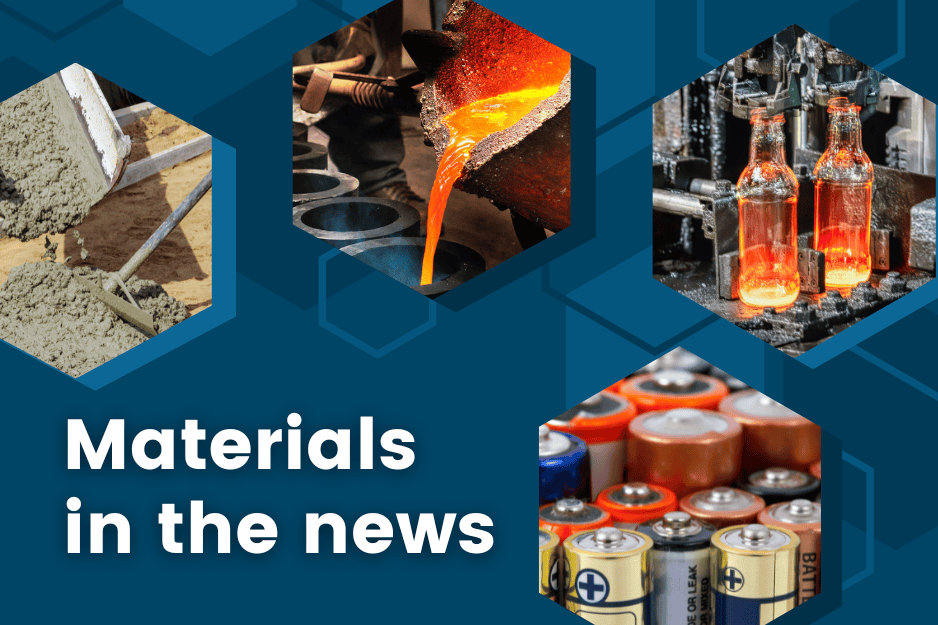
[Images above] Credit: NIST
NANOMATERIALS
Physicists find new way to measure properties of a material’s surface layer
Physicists at The University of Texas at Arlington developed a new technique that can measure the properties of the topmost atomic layer of materials without including information from the underlying layers.
Metasurface-based nanoprinting: Displaying optical images at the nanoscale resolution
In an open-access paper, researchers summarized the development of metasurface-based nanoprinting in recent years, including progress on single-channel, multichannel, and dynamic metasurface-based nanoprinting, as well as multifunctional metasurfaces combining nanoprinting with holography or metalens.
Growing pure nanotubes is a stretch, but possible
Materials theorists at Rice University showed how putting constraints on growing nanotubes could facilitate a “holy grail” of growing batches with a single desired chirality. The work needs to be confirmed experimentally.
Making graphene nanoribbons stable
Researchers in Spain and the Czech Republic found that when hydrogenated, the carbon atoms in graphene nanoribbons rehybridize into a sp3 configuration, which increases their stability in air. The structures can be converted back to their original state through heating. Alternatively, the nanostructures can be stabilized by functionalizing them with ketone side-groups.
ENERGY
Study claims charging cars at home in the evening is not the way to go
Stanford University researchers found rapid electric vehicle growth could increase peak electricity demand by up to 25%, assuming a continued dominance of residential, nighttime charging. To limit the high costs of installing new electricity capacity, they say drivers should move to daytime charging at work or public charging stations.
Previously unseen processes reveal path to better rechargeable battery performance
To design better rechargeable ion batteries, researchers from University of Illinois Urbana-Champaign combined a powerful new electron microscopy technique and data mining to visually pinpoint areas of chemical and physical alteration within ion batteries.
BIOMATERIALS
‘Inherited nanobionics’ makes its debut
Bacteria that take up single-walled carbon nanotubes continue to divide as normal and even pass on the resulting extra capabilities to their descendants. This result, which was recently demonstrated by researchers at the EPFL in Switzerland, forms the basis of a new field they call “inherited nanobionics.”
MANUFACTURING
An alternate route to semiconductor production
Washington University researchers developed an alternative method for producing semiconductors that involves using electrodeposition to create a thin layer of material without the need for an expensive and difficult-to-produce subsurface.
OTHER STORIES
Scientists combine existing technologies to build new ultrafast electron microscope
Nagoya University researchers, in collaboration with Hitachi Hightech Ltd., developed an ultrafast electron microscope by combining a semiconductor photocathode with a “negative electron affinity” surface pioneered by Nagoya University. The resulting microscope can analyze the mechanisms of light-matter interactions in nanomaterials.
Improving rare-earth-free magnets through microstructure engineering
Researchers from the Critical Materials Institute and Ames National Laboratory improved the properties of a rare-earth-free permanent magnet material, manganese bismuth, through microstructure engineering. The researchers also focused on making larger magnets, compared to the typically small magnets developed in labs.
One-unit-cell thick semiconductors with room-temperature magnetism
Wuhan University researchers developed a confined van der Waals epitaxial approach to synthesizing air-stable semiconducting cobalt ferrite nanosheets with thickness down to one unit cell using a facile chemical vapor deposition process.
Author
Lisa McDonald
CTT Categories
- Weekly Column: “Other materials”
